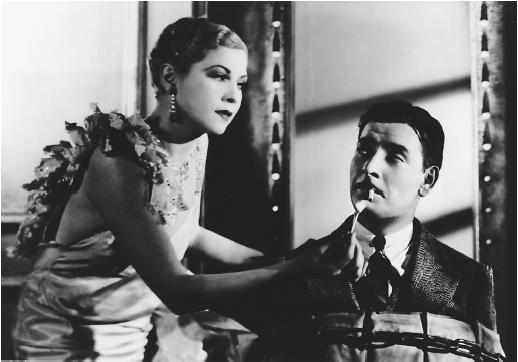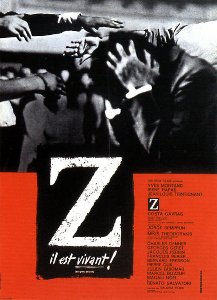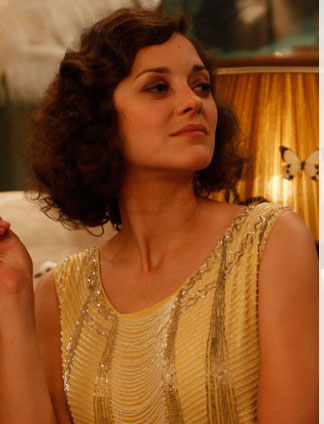Georgy Girl (Dir: Silvio Narizzano, 1966)
Part rom-com, part raunchy comedy, part exploration of gender politics, Georgy Girl is the story of Georgy, a slightly heavy, but vivacious young woman, '22 and never been kissed', who finds herself the object of attention from two completely different men. Lynn Redgrave, she of the famous Redgrave acting dynasty, was Oscar-nominated for her lead performance here, and James Mason picked up a best supporting actor nomination for his role as James, the well-to-do boss of Georgy's father, who wants to make the young girl his mistress. Georgy's other potential lover is the boyfriend of her best friend, Jos, played by Alan Bates.
I had a sinking feeling about this film from the get-go, with the introductory song (also Oscar-nominated) suggesting that Georgy could be happy if only she made a bit more effort with her appearance. As the song (jaunty, though it is) plays, we see our hero nervously entering a boutique, getting her hair styled, and then recoiling in horror as she sees the (admittedly ridiculous) results. This is really a misleading introduction to film and character though, as Georgy is presented as such a charming, spirited girl, that I can't see her as anything but gender-affirming.
Redgrave is really tremendous in her role. She has a naturally pretty face, but is just forceful enough in manner that you can almost believe her as a virgin, if not quite the object of ridicule which she is sometimes made out to be (by her own father, amongst others). What puts it over the top is the casting of Charlotte Rampling as Meredith, Georgy's best friend/flatmate. Just about anybody would look plain standing next to the stunning Rampling. Beyond physical appearances (bear in mind also that Redgrave was known at the time for being the chubby younger sister of Vanessa Redgrave, who incidentally turned down the role of Georgy), Redgrave wonderfully captures Georgy's flair for the dramatic, playfulness, and quick-wit, all the while conveying the idea that these are just tools used by the character to cover up a sense of inferiority, and self-consciousness. It's great watching her share repartee with Mason or Bates, while understanding that just below the surface there is this very insecure young girl. In one stand-out moment, Georgy performs a rambunctious song and dance number ("I need a whole lot of loving, because there's a lot of me to love", or something to that effect) at one of James' high society parties. She's embarrassing herself, but completely embraces her role, as if to show everybody that they can't hurt her, and that she's in on the joke.
Mason is typically debonair as James, who, presumably has watched Georgy grow up, and, with an ill wife confined to her bed, suddenly finds her irresistible. Redgrave and Mason have some great exchanges, particularly when he presents to her a contract which outlines the terms of her becoming his mistress. Mason lost out at the awards to Walter Matthau for The Fortune Cookie. I rate his performance above that one, but not above that of Robert Shaw in A Man For All Seasons. Redgrave, in a category that also included a nomination for her sister, lost out to Elizabeth Taylor (Who's Afraid of Virginia Woolf?). Taylor's performance was good, but a little showy. Redgrave completely charmed me, and I would have given her the award.
Let's not forget Alan Bates. He gives a breathlessly energetic performance (it seems that comedian, Lee Evans, got a lot of his performance manner from Bates) as Jos, clownish, but handsome, and besotted with Meredith when he is clearly better suited to Georgy. The two laugh and joke around together, while Meredith, the cold and detached 'it girl' stands them both up at various times in the film, and conventional rom-com wisdom suggests they will end up together. A spanner is thrown in the works though when Meredith becomes pregnant, and she and Jos get married. For a time, the three of them live together in something resembling harmony, with Georgy acting essentially as the cook/maid. Meredith becomes increasingly difficult to live with as the pregnancy progresses though, and eventually things come to a head when she blows up at Georgy, calling her fat and ugly. It is only then that Jos realises that he is in love with Georgy.
 |
| Georgy and Jos; made for each other? |
The film takes another interesting twist here though, as the new family of Jos, Georgy and baby proves less than perfect, due to Jos's immaturity and lack of interest in being a father. It is at this point that we slowly begin to realise that the only person throughout the whole film who has been nothing but accepting and supportive towards Georgy is James, so easy to write-off as a lecherous old man. Indeed, throughout the film, we see a contrast between Jos's careless attitude towards Georgy (jokingly referring to her as 'fishface', for example), and incidents such as James encouraging his party guests to applaud Georgy after her afore-mentioned performance.
Thinking about it now, the most interesting thing about this film is the way that it plays with your own expectations for the Georgy character. It's very successful in making you see certain characters in a certain way, and getting you to make snap judgments, based on what you know about films and society, about what Georgy needs, what she deserves, and what she will end up with. I think this is a film which is much smarter than it appears to me. Narizzano, a Canadian working in England, keeps the film at a nice pace, and the script is full of humour. It's the actors which really won me over with this one though, particularly Redgrave, who I had only previously seen in her later years. 4 stars.
I should have another new review in ATLI... #17, so until then, here's looking at you.













